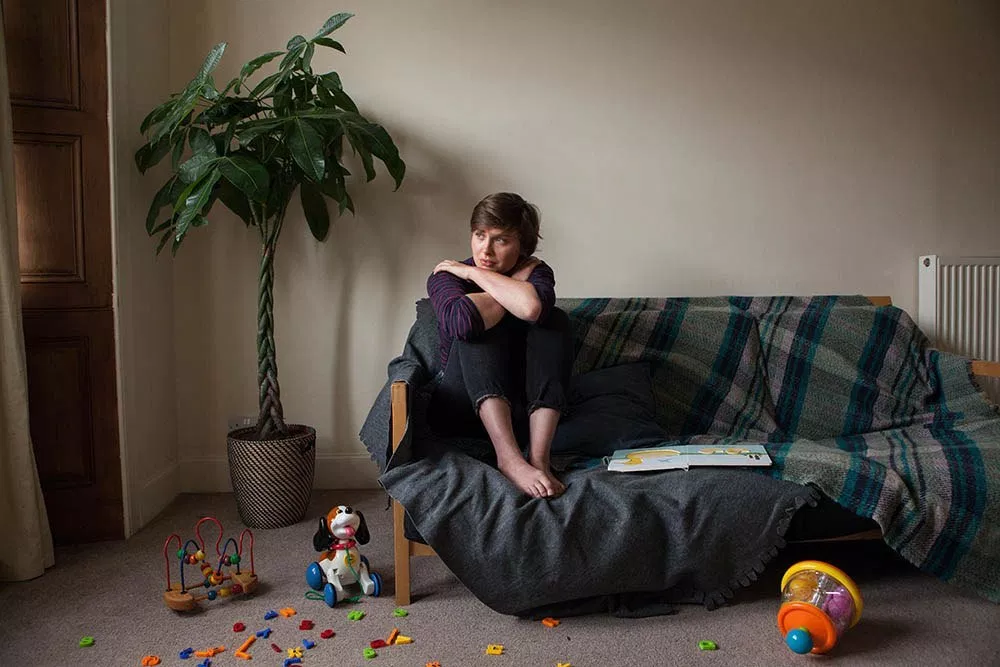New report shows impact of housing emergency on women

The disproportionate impact of the housing emergency on women, and the additional barriers they face in accessing safe, secure, affordable, housing, have been highlighted in a new report published today by Shelter Scotland and Engender.
Released on Challenge Poverty Week’s Housing Day, the Joint Report: Gender and the Housing Emergency shows that the higher rates of poverty among women and their greater reliance on social security benefits restrict their access to housing, with barriers being particularly pronounced for minoritised women.
It also sets out that homelessness services in Scotland are often unequipped to respond to women’s specific needs, particularly those fleeing domestic abuse. Women’s caring responsibilities and concerns over safety also create additional requirements for the type of temporary homeless accommodation that they need to access, which local services too often fail to meet.
Calling for action to address the housing emergency from a gendered perspective, the report makes a series of recommendations, including:
- Improve women’s access to safe, secure, and affordable homes by increasing the supply of social housing.
- Changes to social security to tackle women’s economic inequality, including the establishment of a ‘fund to leave’ for women experiencing domestic abuse.
- Adopting a gendered approach to the allocation and supply of temporary accommodation, taking particular account of women’s needs with regards to gender-based violence and childcare responsibilities.
- Investment in research and improved data collection to ensure women’s homelessness, including those with no recourse to public funds, is better understood and not ‘hidden’ from official monitoring.
The report argues that decades of underinvestment in social homes combined with years of austerity has created a housing system which is not only broken but biased as well.
Shelter Scotland director, Alison Watson, said: “This report sets out in the clearest terms the specific and disproportionate harm done to women by the housing emergency.
“Following on from the devastating homelessness figures published recently, the report is a timely reminder that Scotland’s housing system is not only utterly broken, but also biased as well.
“We know that when it comes to housing councils are breaking the law on an industrial scale, denying support to those who need it and are entitled to it; for a woman fleeing domestic violence the consequences of being turned away could be utterly catastrophic.
“Childcaring responsibilities are also far more likely to fall to women, so growing child homelessness will of course have a hugely disproportionate impact on women in Scotland.
“Scotland’s housing emergency is devastating the lives of women every day; every level of government has a responsibility to act and to heed the recommendations in this report.”
Engender’s executive director, Catherine Murphy, said: “Our report with Shelter Scotland demonstrates the multiple barriers that our current housing system stacks in front of women, and the shocking ways it ignores their specific needs, pushing women into cycles of poverty and instability.
“The situation is even worse for women dealing with multiple layers of inequality. BME, disabled, and refugee women, lone parents, and those with caring responsibilities, often face relentless difficulty in securing stable housing.
“The official homelessness statistics tell us only a fraction of the story, as they fail to capture the complexity of women’s experiences, leaving them ‘hidden’ from our understanding of the problem.
“The recent pilot fund for women experiencing domestic abuse is a positive step, but it barely scratches the surface of what’s needed to address the housing emergency women face.
“Any serious response to Scotland’s housing crisis must start with acknowledging the deep gender bias in the system and taking targeted action to improve women’s access to safe, secure, and affordable homes.”









